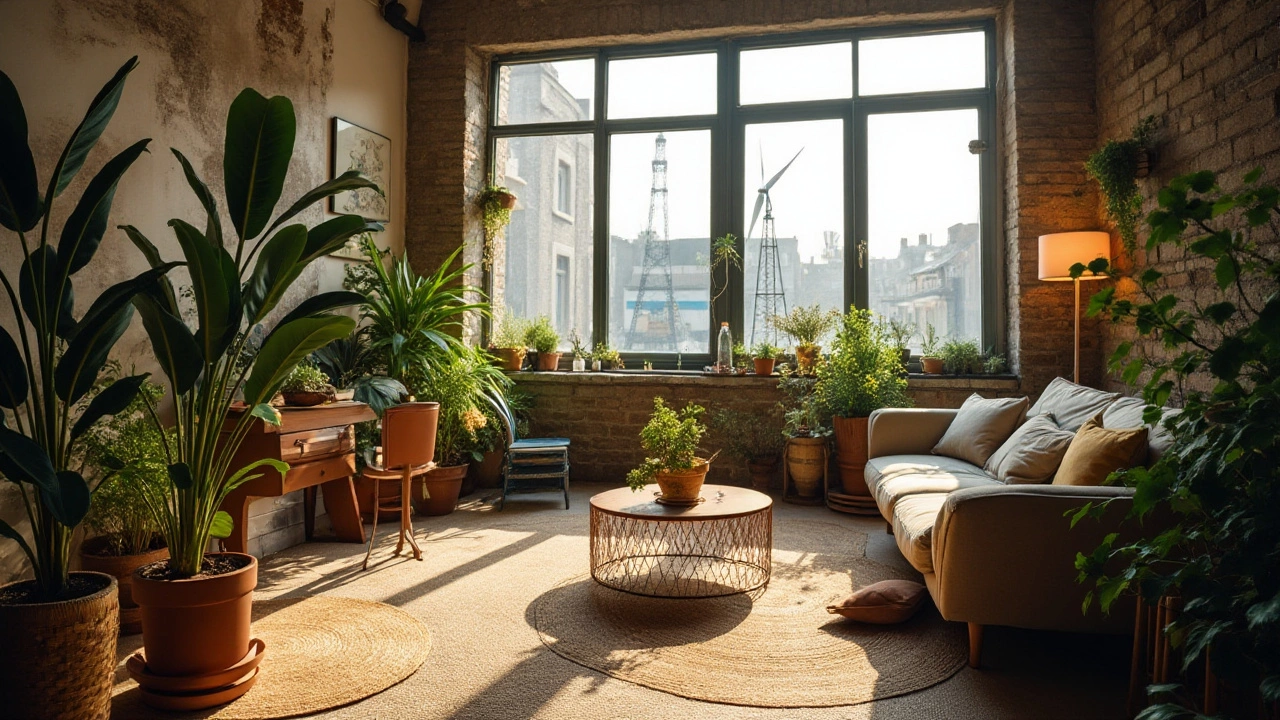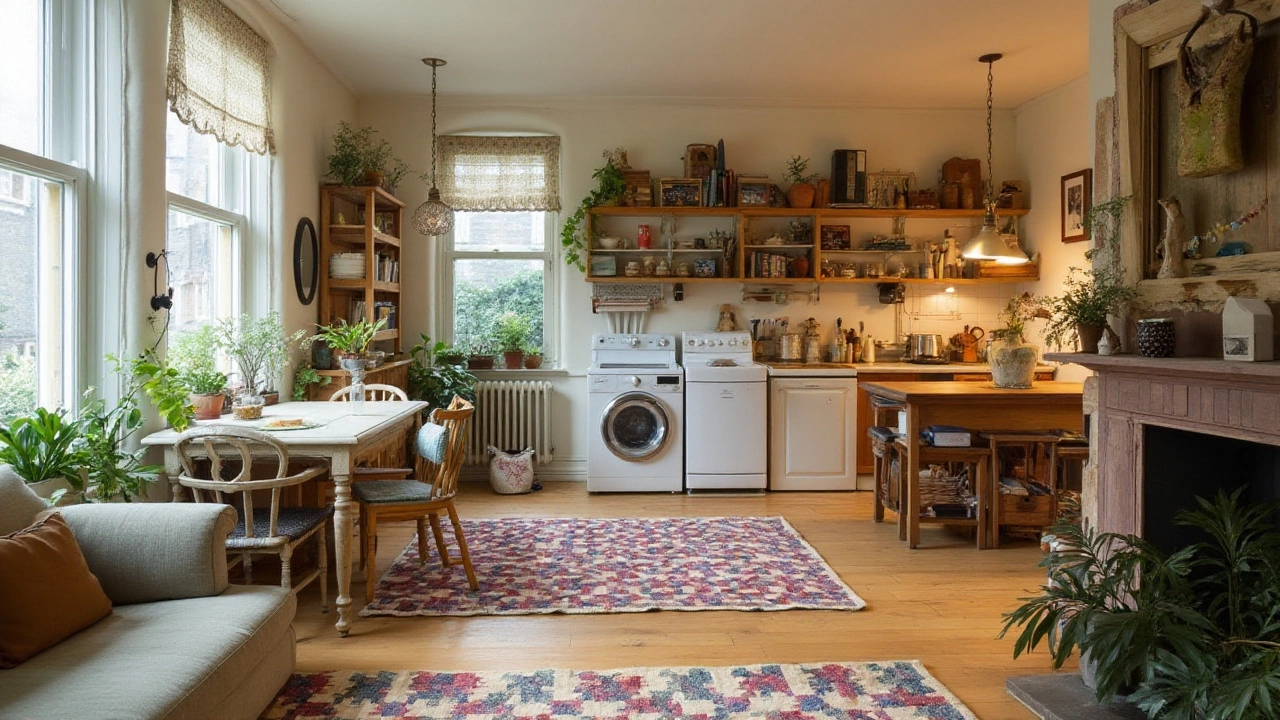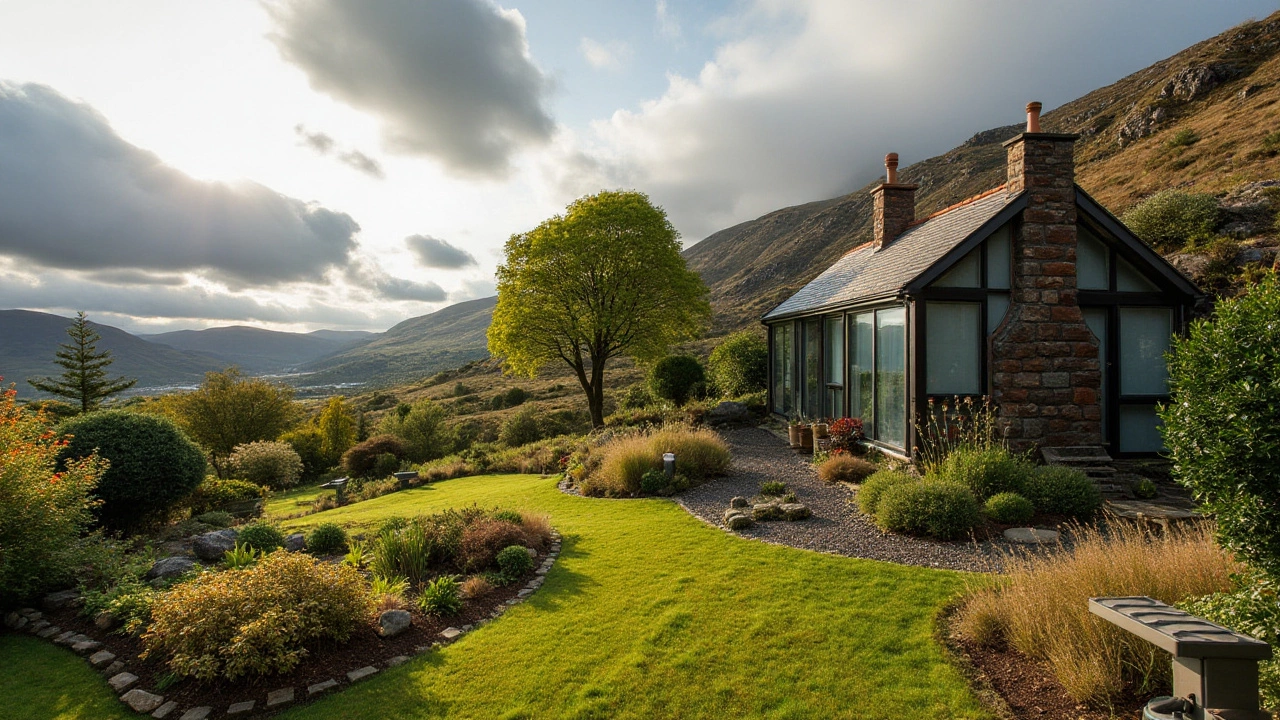As the world becomes more environmentally conscious, the desire for eco-friendly travel accommodations continues to rise. Making your Airbnb greener not only has positive impacts on the planet but also attracts guests who prioritize sustainability. Whether you're hosting a cozy cottage or a chic urban apartment, there are numerous ways to make an eco-friendly difference.
Understanding how to reduce energy consumption, manage water effectively, and use sustainable resources can greatly enhance your property's appeal to eco-conscious travelers. By fostering a space that respects the environment, you're showing commitment to preserving our planet's resources while meeting the expectations of a growing market of green travelers.
Let’s explore how you can transform your rental into a sanctuary that seamlessly combines comfort and sustainability, creating memorable experiences for your guests.
- Embrace Energy Efficiency
- Conserve Water Smartly
- Choose Sustainable Materials
- Encourage Eco-Friendly Practices
Embrace Energy Efficiency
Making your Airbnb energy efficient presents a golden opportunity to reduce costs and appeal to eco-conscious travelers. Begin by assessing your property's current energy usage. This initial step involves understanding where your property consumes the most energy—consider appliances like refrigerators, heating systems, and lighting. Often, these are the silent culprits in exorbitant utility bills. By pinpointing inefficient appliances, you can strategically replace or upgrade them to more energy-efficient models, such as those labeled with ENERGY STAR certification. These appliances are designed to consume less energy while maintaining the same level of functionality, allowing hosts to make a positive environmental impact and reduce electricity costs simultaneously.
Another impactful method to enhance energy efficiency is through the installation of LED lighting. LEDs present a substantial advantage over traditional incandescent bulbs by using approximately 75% less energy and lasting 25 times longer. This isn't just economically smart but also significantly reduces the carbon footprint of your Airbnb. To further encourage sustainable energy use, hosts might consider installing programmable thermostats. These smart devices give guests the ability to tailor the heating or cooling of the accommodation to their exact needs, preventing unnecessary energy waste when rooms are unoccupied. As the renowned energy expert Amory Lovins once stated,
"Energy efficiency isn't just good business; it's good sense."
Beyond the appliances and thermostats, consider investing in energy-efficient windows and adequate insulation. Replacing single-pane windows with double or triple glazing helps to maintain comfortable indoor temperatures, reducing the dependency on heating and air conditioning. Effective insulation in attics and walls traps heat during colder months and maintains cooler temperatures during the summer, further optimizing energy usage. These improvements, while they might require an upfront investment, often result in long-term savings and an enhanced property value. Moreover, as potential guests learn of these eco-friendly upgrades, they're likely to choose your rental over others, aligning their choices with their values.
Finally, educating your guests can lead to significant energy savings. Simple reminders at check-in or informational brochures highlighting practices such as turning off lights when leaving rooms or reducing thermostat levels when not in use can reinforce sustainable living. There’s a helpful guide that illustrates energy-saving behaviors:
- Turn off electronics and lights when not in use.
- Utilize natural light wherever possible.
- Encourage shorter showers to conserve hot water.

Conserve Water Smartly
Adopting water conservation techniques is a vital aspect of making your Airbnb more environmentally friendly. Start by recognizing that water is a precious resource, and reducing its use not only saves money but also decreases your rental's environmental impact. Install low-flow fixtures like faucets, showerheads, and toilets to significantly decrease water consumption without compromising comfort. These modern fittings can reduce water usage by up to 50%, providing substantial savings over time while aligning with the expectations of eco-conscious travelers.
Consider introducing a smart irrigation system if your Airbnb features a garden or yard. These systems adjust watering schedules based on weather forecasts and soil moisture levels, optimizing water usage throughout the day. Transitioning to native plants or xeriscaping can also drastically lower the need for irrigation, creating a low-maintenance and sustainable landscape. Remember, every drop saved now is a resource preserved for future generations.
Educating your guests on how they can contribute to water conservation during their stay is equally important. Leave gentle reminders near sinks and showers, encouraging short showers and ensuring taps are turned off fully after use. Include information in your welcome materials about local efforts to reduce water use, perhaps citing successful environmental initiatives or standards in the area. It often helps guests feel connected to the bigger picture and more willing to participate if they understand local context.
"Water conservation doesn’t end with reducing usage. It extends to ‘reusing’ every possible drop. Even small actions by the many can lead to a significant cumulative impact," says a spokesperson from the Environmental Protection Agency.
To inspire your guests, make water-saving supplies easily accessible. Provide reusable water bottles as a thoughtful gesture, perhaps branded with your property’s name, that guests can use during their stay. Offering eco-friendly dish detergent and laundry soap also promotes sustainable water management by reducing harmful runoff that adversely affects local water systems.
An eye-opening strategy is to track your property's water usage patterns using smart meters, which offer insights into peak usage times and potential leaks. These insights can guide further conservation efforts and fix small issues before they become costly problems. By demonstrating commitment to such practices, your eco-friendly cottages stand out to potential guests looking for sustainable accommodations.

Choose Sustainable Materials
Creating an eco-friendly Airbnb begins with the thoughtful selection of materials. Opting for sustainable materials not only reduces the environmental impact of your property but also offers a story to tell your eco-conscious guests. Consider the surfaces they will interact with daily, from the floors beneath their feet to the fibers on their bedsheets. Bamboo flooring is a superb choice; it's highly durable, grows incredibly fast, and uses far fewer resources compared to conventional hardwoods. In fact, bamboo can grow to full size within just five years, minimizing deforestation concerns. Many green living advocates also love reclaiming materials, like salvaged wood, which not only adds unique character but prevents waste from ending up in landfills.
"Sustainable building materials can be beautiful and functional, while also reducing our impact on the planet. Opting for materials with a smaller carbon footprint is a step towards more responsible stewardship of our natural resources." — Sustainable Living Expert
When it comes to soft furnishings, prioritize textiles made from organic cotton or hemp, which unlike conventional cotton, are cultivated without harmful pesticides and require less water to grow. Consider adding wool or recycled polyester rugs, which combine comfort with eco-conscious production techniques. Rugs can also serve as insulation, thus cutting down the need for excessive heating — a bonus in energy efficiency.
Beyond what your guests can see, consider what lies beneath your walls. Eco-friendly wall insulation using sheep’s wool or cellulose, made from recycled newspaper, offers a healthier alternative to fiberglass. These materials are especially effective at regulating indoor temperatures and improving energy efficiency, which is a huge draw for eco-conscious travelers seeking a sustainable experience.
For those hosted in climates where wood-burning fireplaces are feasible, the use of ethanol fireplaces might be an interesting angle. Ethanol is a renewable resource, and using it reduces emissions. The aesthetic of a cozy fireplace remains intact, all while aligning with green values. This element can become a unique selling point for your sustainable Airbnb, intertwining cozy ambiance with environmental care.
To summarize the power of sustainable choices, consider this: a thoughtfully constructed space using sustainable materials often experiences increased longevity and decreased maintenance, which can significantly elevate your Airbnb's reputation. Guests are often intrigued by properties that support eco-friendly initiatives, potentially leading to more bookings and positive reviews. As more travelers lean towards eco-conscious accommodation, introducing these elements can enhance your property's allure, ensuring it is both responsible and rewarding.

Encourage Eco-Friendly Practices
Embracing an eco-friendly ethos doesn't stop at constructing sustainable spaces or investing in energy-saving devices; it extends to encouraging guests to adopt green practices during their stay. Start by providing clear, yet engaging information that ignites curiosity and respect for sustainability. A simple, well-designed welcome guide stocked with tips on minimizing energy use, water conservation, and recycling can be greatly beneficial. Guests often appreciate knowing how their actions can positively impact the environment, even on a small scale. Encourage them to turn off lights and unplug electronics when not in use, and to make use of any recycling facilities available on your property. Small reminders, such as notes strategically placed near light switches, can prompt eco-conscious behavior effortlessly.
To foster a connection with the environment, consider offering bicycles for local exploration, thus reducing the carbon footprint associated with car travel. Collaborations with local eco-conscious businesses for discounts or unique experiences can also enhance the guest experience while promoting sustainable community initiatives. By offering information on public transport options or suggesting walking and cycling routes, your guests can explore destinations while making minimal environmental impact.
Equipping your Airbnb with reusable products can also make a sizable difference. Providing cloth shopping bags, glass water bottles, and composting bins is a direct and tangible way to reduce single-use waste. Educating guests about proper recycling and composting procedures can significantly diminish landfill contributions. Not only do these actions appeal to eco-conscious travelers, but they also convey a powerful message about the importance of sustainability in today’s world.
Sometimes, inspiration lies in the subtle details. Sharing facts about the local environment or ecosystem – perhaps in a charming note or unique art piece within the home – can deepen a guest’s appreciation and awareness. As Eryl Griffiths, an advocate of sustainable travel, once said,
"Seeing the change through small daily actions is what creates a ripple effect that can alter our environmental future."A little creativity in how you present these practices can leave guests feeling enlightened and motivated to make eco-conscious choices in their own lives.
Importantly, feedback is your ally in evolving eco-friendly strategies. Engage with previous guests to learn what eco-practices they found valuable or suggest improvements that can enhance their stay. An actively adaptive approach signals your genuine commitment to sustainability, garnering a positive response from guests eager to share their experiences on savvy travel forums. Sustainable Airbnb practices not only meet the current demand for green accommodations but also play a crucial role in setting industry standards and expectations for future travel.